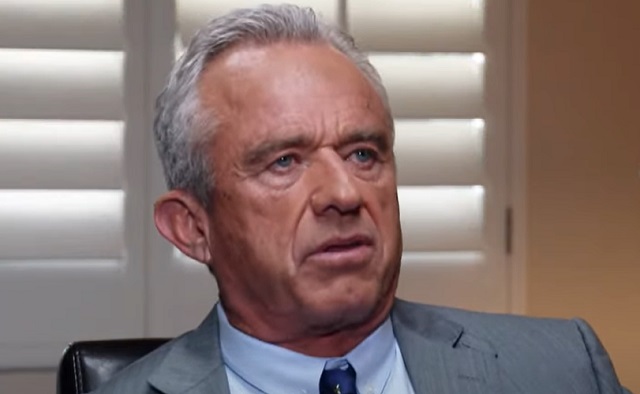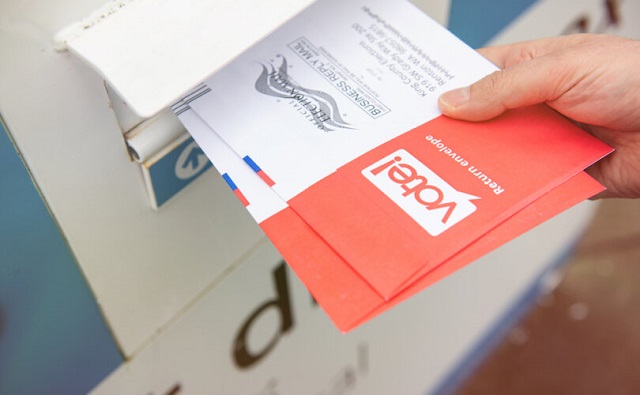Economy
A Fair Deal Includes Energy Security
This article contributed by Josh Andrus, Executive Director of Project Confederation
Energy security.
It’s a concept that has been ignored by many – including our federal government in Ottawa – for far too long.
Russia’s invasion of Ukraine has suddenly helped the world realize what’s been obvious to many Albertans for a long time – we still need oil and gas!
The same parade of politicians who crusaded to save the world from the threat of “catastrophic” climate change are now coming to the realization that there is a fundamental flaw in the Green New Deal / Leave It In The Ground / Build Back Better strategy.
Energy is the industry that powers every other industry – and as such, a safe supply of affordable, reliable energy is not only good for the domestic economy but also a crucial tool in an increasingly volatile international geopolitical landscape.
Earlier this week, after a big push by our friends at the Alberta Institute, and many other political and non-profit groups, the federal government finally announced that they would ban the importation of Russian oil.
Russia’s aggressive actions, and the related uncertainty, have now driven the price of crude oil over the $115/bbl benchmark.
[Editor’s note: we had to increase that price four times while writing this piece!]
Thankfully, Alberta has a large supply of energy resources, resources that could displace the loss of Russian imports and help keep energy affordable for Canadians.
Of course, it would have been better if our calls had been listened to years ago, and we had the infrastructure in place already!
But, as the saying goes:
The best time to build a pipeline was 20 years ago.
The second-best time is now!
If our politicians had any sense, Keystone XL and Energy East would have been given emergency approval the moment war broke out.
Yet, here we are, a week into a European war, and there’s been nary a whisper from the White House or Rideau Cottage.
If Alberta can’t convince Canada to build a pipeline in the middle of a war in Europe, we’ll surely never get one.
To make matters worse, the pipeline issues aren’t even the only possible problem on the horizon.
In past years, $100+ oil was good for Alberta.
Economic growth explodes, jobs are plentiful, and the pay is phenomenal.
Some of that will surely happen in the coming months, but with this current boom coinciding with major inflationary pressures, there are risks for Alberta too.
High energy prices and the ensuing increase in the cost of living will hurt the rest of the country.
The Rest of Canada will complain that Alberta has it so good, while they struggle to pay their hydro bills.
Will the Rest of Canada decide to start extracting their own plentiful natural resources, currently kept in the ground for nonsensical environmental concerns?
Of course not.
Ottawa will, undoubtedly, devise yet another means of wealth redistribution instead.
Once again, they’ll figure out a way to make Alberta pay for their poor policy choices.
They probably won’t have the gall to call it a “National Energy Program”.
But they might.
Remember, the major issues driving Western alienation are structural deficiencies in Confederation, deficiencies that have only gotten worse in recent decades, not better.
The West is underrepresented in Parliament, the Senate is unelected and ineffective at protecting Provincial rights, the very concept of fairness is undermined in our Constitution via equalization, and the Supreme Court screws the West and protects the rest.
At Project Confederation, our mission is clear:
To build a movement that will reform Confederation and achieve a fairer deal, in whatever legal configuration that may require.
I suspect we’re going to have a lot of work to do in the coming months!
If you’d like to help us with that work, please reach out to us to get involved, or consider making a donation to help fund our efforts.
Regards,
Josh Andrus
Executive Director
Project Confederation
CBDC Central Bank Digital Currency
A Fed-Controlled Digital Dollar Could Mean The End Of Freedom

 From the Daily Caller News Foundation
From the Daily Caller News Foundation
Central bank digital currencies (CBDC) are a threat to liberty.
Sixty-eight countries, including communist China, are exploring the possibility of issuing a CBDC. CBDCs are essentially government-sponsored cryptocurrencies pegged to the value of a national currency that allow for real-time payments.
The European Union has a digital euro CBDC pilot program, and all BRICS nations (Brazil, Russia, India, China and South Africa) are working to stand up CBDCs. China’s CBDC pilot, the largest in the world, is being used by 260 million individuals.
While faster payments are a positive for markets and economic growth, CBDCs present major risks. They would allow governments to meticulously monitor transactions made by their citizens, and CBDCs open the door for government planners to limit the types of transactions made.
Power corrupts, and no government should have that level of control. No wonder China and other authoritarian regimes around the globe are eager to implement a CBDC.
Governments that issue CBDCs could prohibit the sale or purchase of certain goods or services and more easily freeze and seize assets. But that would never happen in the U.S, right? Don’t be so certain.
Take a look at recent events in our neighbor to the north. The government of Canada shut down bank accounts and froze assets of Canadian citizens protesting the COVID-19 vaccination in Ottawa during the winter of 2022. With a CBDC, authoritarian actions of this kind would be even easier to execute.
To make matters worse, the issuance of a CBDC by the Federal Reserve, the U.S.’s central bank, has the potential to undermine the existing banking system. The exact ramifications of what a CBDC would mean to the banking sector are unclear, but such a development could position the Fed to offer banking services directly to American businesses and citizens, undercutting the community banks, credit unions, and other financial institutions that currently serve main street effectively.
The Fed needs to stay out of the banking business – it’s having a hard enough time achieving its core mission of getting inflation under control. A CBDC would open the door for the Fed to compete with the private sector, undercutting economic growth, innovation, and financial access in the process.
Fed Chair Jerome Powell has testified before Congress that America’s central bank would not issue a CBDC without express approval from Congress, but the Fed has studied CBDCs extensively.
For consumers who want the ability to make real-time payments internationally, CBDCs are not the answer. Stablecoins offer a commonsense private sector solution to this market demand.
Stablecoins are a type of cryptocurrency pegged to the value of a certain asset, such as the U.S. dollar. If Congress gets its act together and creates a regulatory framework for stablecoins, many banks, cryptocurrency firms, and other innovative private sector entities would issue dollar-pegged stablecoins. These financial instruments would allow for instantaneous cross-border payments for market participants who find that service of value.
Stablecoins are the free market response to CBDCs. They offer the benefits associated with the technology without the privacy risk, and they would likely enhance, not disrupt, the existing banking sector.
Representatives Patrick McHenry (R-N.C.) and French Hill (R-Ark.) have done yeoman’s work advancing quality, commonsense stablecoin legislation in the House of Representatives, and the Senate needs to move forward on this issue.
Inaction by Congress will force innovators overseas and put the U.S. at a competitive disadvantage. It would also help the Fed boost the case for a CBDC that will undermine liberty and open the door to government oppression.
Tommy Tuberville is a Republican from Alabama serving in the United States Senate. He is a member of the Senate Agriculture Committee, which plays a key role in overseeing emerging digital assets markets.
Business
Taxpayers criticize Trudeau and Ford for Honda deal

From the Canadian Taxpayers Federation
Author: Jay Goldberg
The Canadian Taxpayers Federation is criticizing the Trudeau and Ford governments to for giving $5 billion to the Honda Motor Company.
“The Trudeau and Ford governments are giving billions to yet another multinational corporation and leaving middle-class Canadians to pay for it,” said Jay Goldberg, CTF Ontario Director. “Prime Minister Justin Trudeau is sending small businesses bigger a bill with his capital gains tax hike and now he’s handing out billions more in corporate welfare to a huge multinational.
“This announcement is fundamentally unfair to taxpayers.”
The Trudeau government is giving Honda $2.5 billion. The Ford government announced an additional $2.5 billion subsidies for Honda.
The federal and provincial governments claim this new deal will create 1,000 new jobs, according to media reports. Even if that’s true, the handout will cost taxpayers $5 million per job. And according to Globe and Mail investigation, the government doesn’t even have a proper process in place to track whether promised jobs are actually created.
The Parliamentary Budget Officer has also called into question the government’s claims when it made similar multi-billion-dollar handouts to other multinational corporations.
“The break-even timeline for the $28.2 billion in production subsidies announced for Stellantis-LGES and Volkswagen is estimated to be 20 years, significantly longer than the government’s estimate of a payback within five years for Volkswagen,” wrote the Parliamentary Budget Officer said.
“If politicians want to grow the economy, they should cut taxes and red tape and cancel the corporate welfare,” said Franco Terrazzano, CTF Federal Director. “Just days ago, Trudeau said he wants the rich to pay more, so he should make rich multinational corporations pay for their own factories.”
-

 Automotive21 hours ago
Automotive21 hours agoThe EV ‘Bloodbath’ Arrives Early
-

 CBDC Central Bank Digital Currency12 hours ago
CBDC Central Bank Digital Currency12 hours agoA Fed-Controlled Digital Dollar Could Mean The End Of Freedom
-

 COVID-192 days ago
COVID-192 days agoTrudeau gov’t has paid out over $500k to employees denied COVID vaccine mandate exemptions
-

 Addictions2 days ago
Addictions2 days agoWhy can’t we just say no?
-

 International2 days ago
International2 days agoRFK Jr tells EWTN: Politicization of the CIA, FBI, Secret Service under Biden is ‘very troubling’
-

 Business1 day ago
Business1 day agoHonda deal latest episode of corporate welfare in Ontario
-

 espionage1 day ago
espionage1 day agoOne in five mail-in voters admitted to committing voter fraud during 2020 election: Rasmussen poll
-

 Brownstone Institute11 hours ago
Brownstone Institute11 hours agoThe Numbers Favour Our Side







